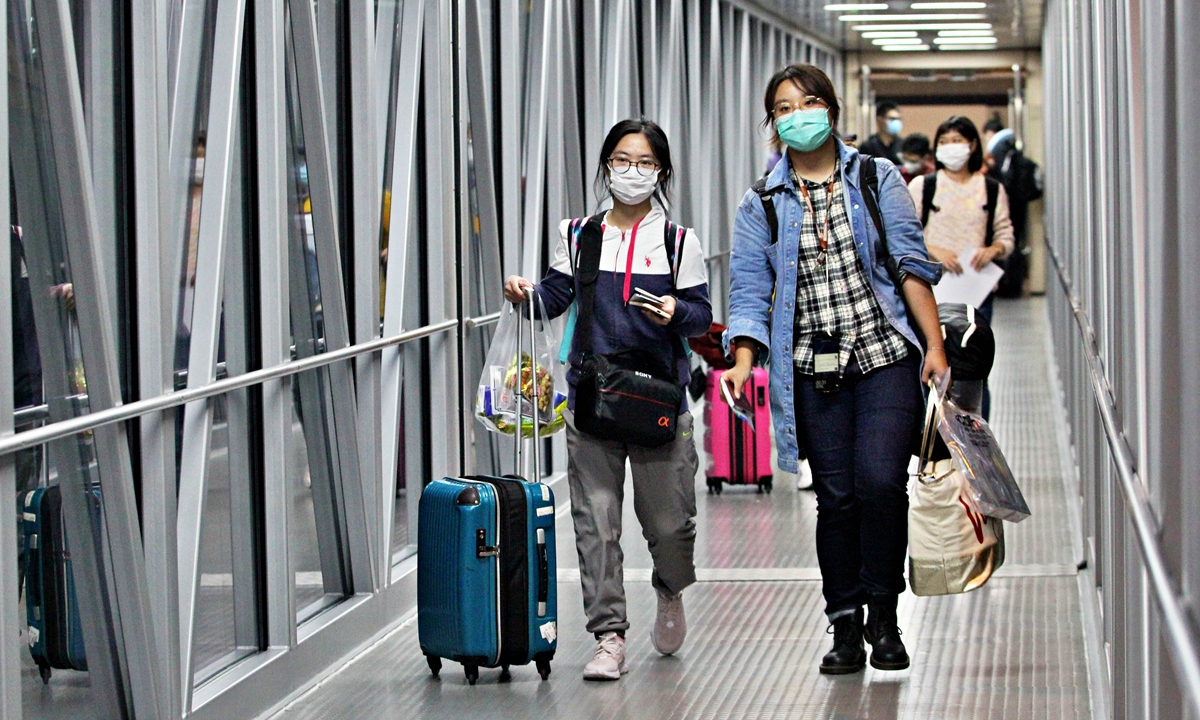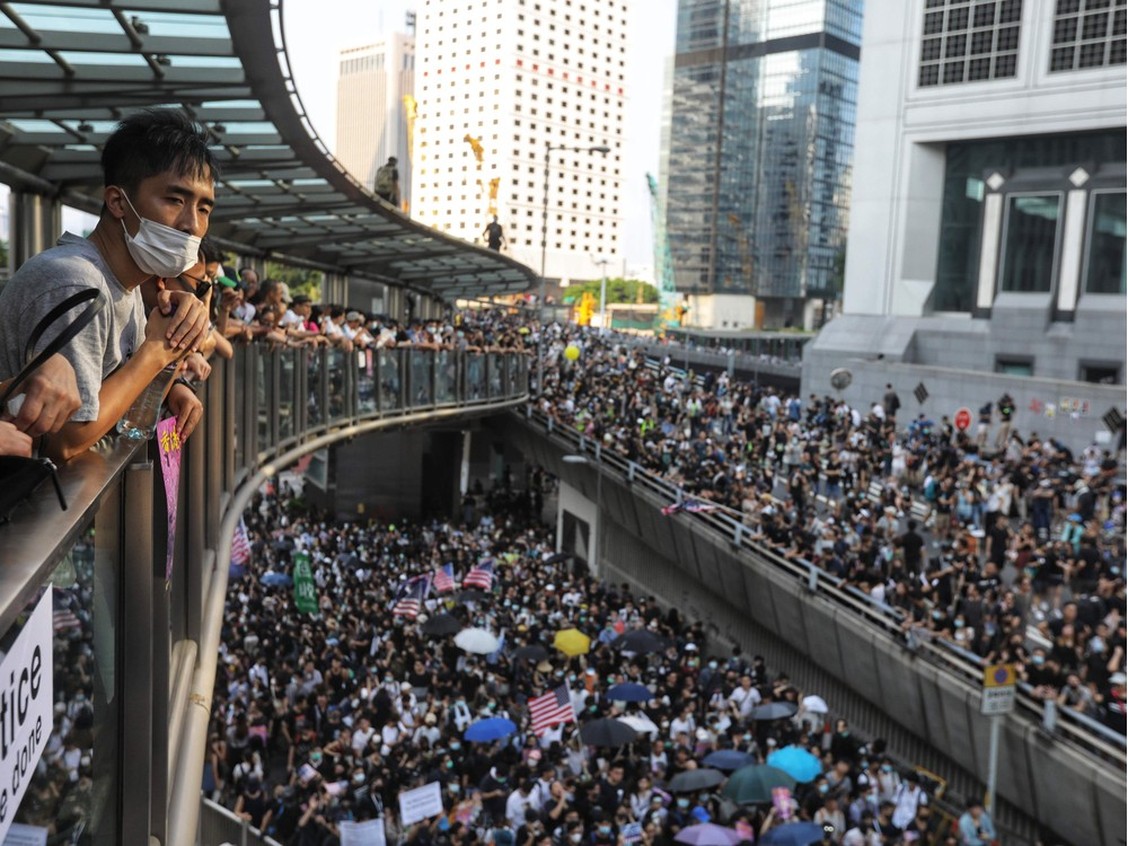Beijing's Global Strategy for Preeminence in Science, Technology and Academia
"China not only seeks influence at an institutional level but will also target individual academics who focus on China, seeking to ensure that they act in the CCP's best interests either through professional inducements or, if that doesn't work, by intimidation.""China appears prepared to use levers, such as research funding and travel opportunities, to cultivate relationships with academics, and to encourage them to change their research direction or course content in line with CCP objectives.""Pressure is exerted on institutions, academics and students to prevent engagement with topics that harm the positive narrative presented by the Chinese Communist Party.""Once established in academic institutions, these students are in a position to identify and exfiltrate valuable information, data and intellectual property back to China.""In its quest for economic advantage, China often acts in plain sight -- directing, funding and collaborating on academic research for its own ends."British Parliament Intelligence and Security Committee"China has been aggressive in its interference activities ... It has been particularly effective at using its money and influence to penetrate or buy academia in order to ensure its international narrative is advanced and criticism suppressed.""This is particularly acute when it involves the so-called ‘Five Poisons’ [Taiwanese independence, Tibetan independence, Xinjiang separatists, the Chinese democracy movement and the Falun Gong]."Julian Lewis, Committee Chair"You say something they don't like, they deny you a visa.""The student bodies are infiltrated. We know there are meetings through the middle of the night and the following morning some Chinese students can get rung up by somebody at the cultural and education section of the embassy to ask them: Why did you say that? Why did you do that?"Professor Steve Tsang, School for Oriental and African Studies
 |
| Two students walk through Chongqing Jiangbei International Airport to catch a chartered flight to Manchester in the UK. The plane will take 74 Chinese students to the UK. Photo: VCG |
Evidence
has been revealed of Chinese officials approaching academic lecturers
in Britain, to promise them "professional inducements" in the form of
research funding and travel opportunities, as part of the manner in
which British universities had been "bought" by the Chinese Communist
Party. The British Parliament's intelligence and security committee
through their extensive investigation produced a 200-page report
revealing details of Beijing's concentrated program to inveigle itself
into British academia.
Beijing
seeks out a prominent place in the global field of science and
invention, seeking influence worldwide as a driver of both through a
scheme of interdependence which links into its 21st century role as the
world's production source of consumer products of every description and
dimension. In the UK the report points out that its universities were "turning a blind eye to the risk"
in becoming reliant on China for financial support. The University of
Surrey accepted a $13-million donation from Huawei to find its 5G6G
Innovation Centre.
Chinese
state authorities are also evidently intimidating British academics and
students by a Beijing directive to infiltrate and purloin research to
benefit the People's Liberation Army. One witness interview of Professor
Steve Tsang revealed that within six months of accepting his new status
within the School for Oriental and African Studies, a political
councillor from the Chinese embassy offered him anything he would like,
for his 'cooperation'. "It is as blatant as that", he reported.
Access to visas is also being used as leverage, affirmed by Professor Tsang. "If
you are an academic and specializing in China, and your entire academic
life is focused on China, the threat of not being permitted to travel
to the country of your academic focus becomes a very powerful threat."
Years previously it was revealed that scientists at leading
universities, including Cambridge, Edinburgh and Manchester, worked on
projects with researchers at China's nuclear weapons research
institution.
Dozens
of scientific papers were published by British academics working
alongside scientists from a Chinese institution on an American sanctions
list, reflecting its research into developing Beijing's nuclear
arsenal. Investigative journalism at The Telegraph
uncovered that situation. There are over 90 Chinese Students and
Scholars Associations (CSSAs) working out of the U.K. -- partially
financed by the Chinese embassy -- monitoring the activities of Chinese
students. A situation the committee recognized as resulting in a "culture of fear and suspicion among Chinese students in the U.K."
The
largest overseas contingent of students on study visas in U.K.
universities -- over 120,000 -- are Chinese students. A number greater
than in the rest of Europe combined. Five times as many students are
sent by China to the United Kingdom, as compared to the country that
comes in second for its students studying abroad; India. In Canada, a
similar situation prevails, with 60,000 student visas issued at last
count, down substantially from the year before which stood at 90,000, as
Chinese relations with Canada sour.
The Glasgow CSSA incited flash mobs to confront Hong Kong demonstrations.
"There is Chinese embassy involvement in these demonstrations ... They
surrounded us in a circle, waving Chinese flags, singing the national
anthem and being hostile", one Hong Kong student
narrated. The Joint Intelligence Committee chairman spoke of
intimidation examples the Chinese authorities use: "sometimes
with the vice-chancellor getting a phone call, sometimes at student
body level, to try to discourage universities from allowing speakers on
issues like Tibet or Xinjiang".
Beijing
exploits research programs at British universities for the benefit of
the Chinese military. The People's Liberation Army, according to the
Australian Strategic Policy Institute, sent approximately 500 military
scientists to U.K. academic institutions in the decade up to 2017.
"Once established in academic institutions, these students are in a
position to identify and exfiltrate valuable information, data and
intellectual property back to China", the committee pointed out.
:format(jpeg)/cloudfront-us-east-1.images.arcpublishing.com/tgam/3ZOFFONMUBN55JJCRQVYLEUDGY.jpg) |
People walk across a street near a large screen promoting the Chinese People's Liberation Army in Beijing Andy Wong/The Associated Press |
"Beijing is using a 'workaround strategy' for postgraduate researchers to study cutting-edge technology at Canadian and U.S. universities after Washington began denying visas for some Chinese students on the grounds that they might steal intellectual property with military uses, according to a Canadian Security Intelligence Service report.""The Dec. 21, 2021, report, labelled secret ... said the strategy sends some scholarship students to Canada from the People’s Republic of China (PRC) with the aim of gaining access to critical high tech.""The Chinese government’s game plan includes training these Chinese citizens on how to avoid drawing too much attention when studying abroad.""The CSIS report lays out how China is using students to obtain technology that could be of benefit to the Chinese military, such as quantum computing, big data and artificial intelligence. The report was shared across key government departments and with the CIA, FBI and Britain’s domestic intelligence service, M15, as well as Australian and New Zealand authorities."The Globe and Mail, Toronto
 |
Labels: Canada, Chinese Communist Party, Exfiltration, Infiltration, People's Liberation Army Student Visas, Technological Advances, Trade Secrets, United Kingdom, United States

<< Home